1970
Construction of current control tower
Established in 1939, Bankstown Airport has evolved to become NSW’s premier general aviation airport in the heart of southwest Sydney.
Our mission is to continue to grow Bankstown Airport’s vibrant and flourishing centre for aviation, industry and business, including sustainable and environmentally friendly operations and development.
Operating 24 hours 7 days a week, Bankstown Airport plays a major role in the aviation community and as a base for NSW’s air emergency services and patient transfer, and positively impacting the lives of many Australians. Operations also include firefighter operations, charter, maintenance, education and training.
With over 170 businesses, world-class operators and function facilities, Aeria delivers over $1bn and 6,000 jobs to the New South Wales economy every year.
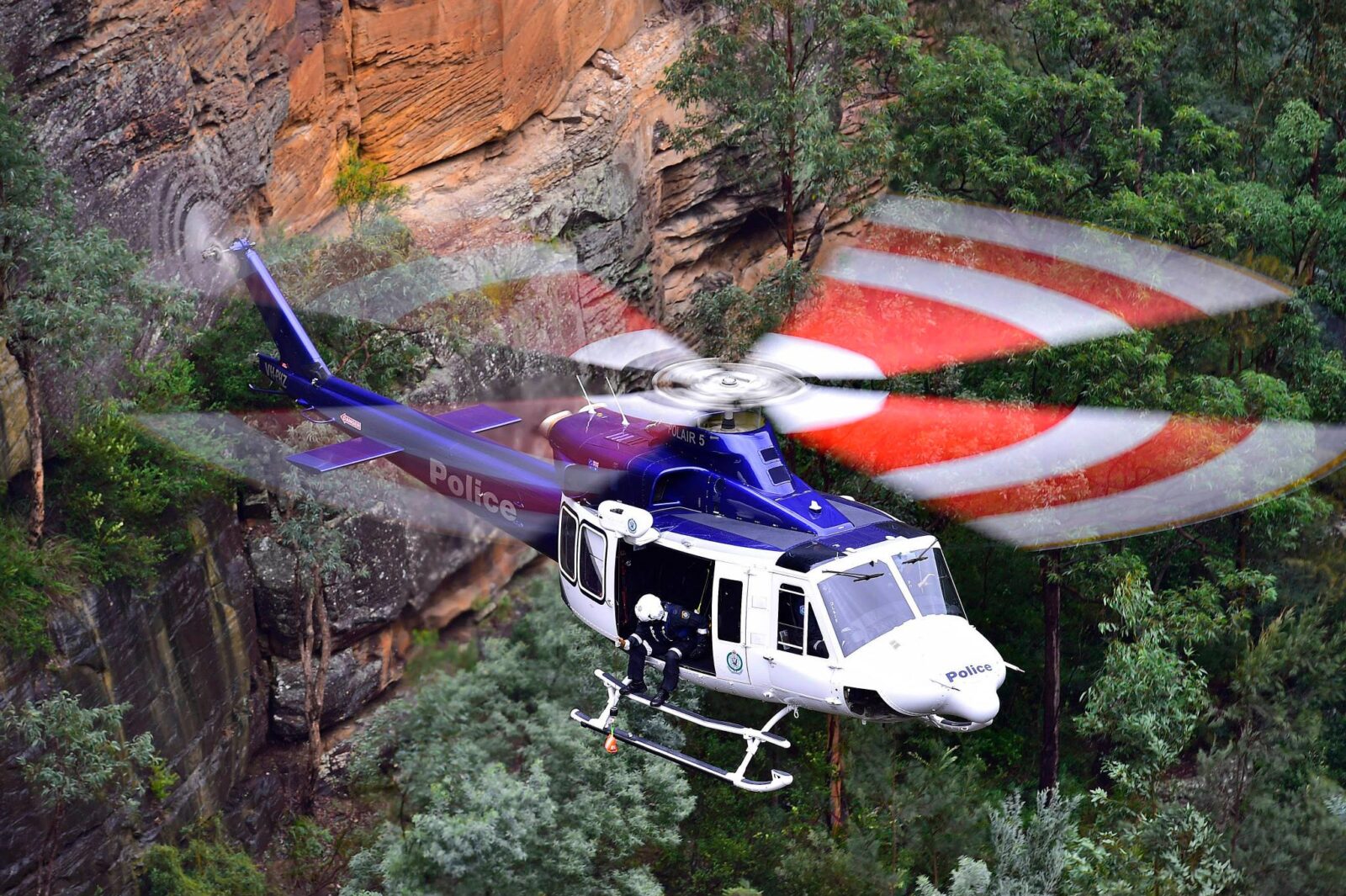
Our values ensure everyone at Aeria is customer focused, aware, responsible, safe and engaged. Strong leadership has resulted in a unified desire to create compelling and positive experiences for everyone.
We always look for opportunities to go beyond the traditional approach with tenants, partners and colleagues which leads to greater participation in the offerings we create for our end users. Our objective is to create new experiences that lead to success and enjoyment for all.
Aeria is always conscious of the impact we have on communities and our environment. Aeria people work together to expand our offering and our places in meaningful, sustainable, and ethical ways.
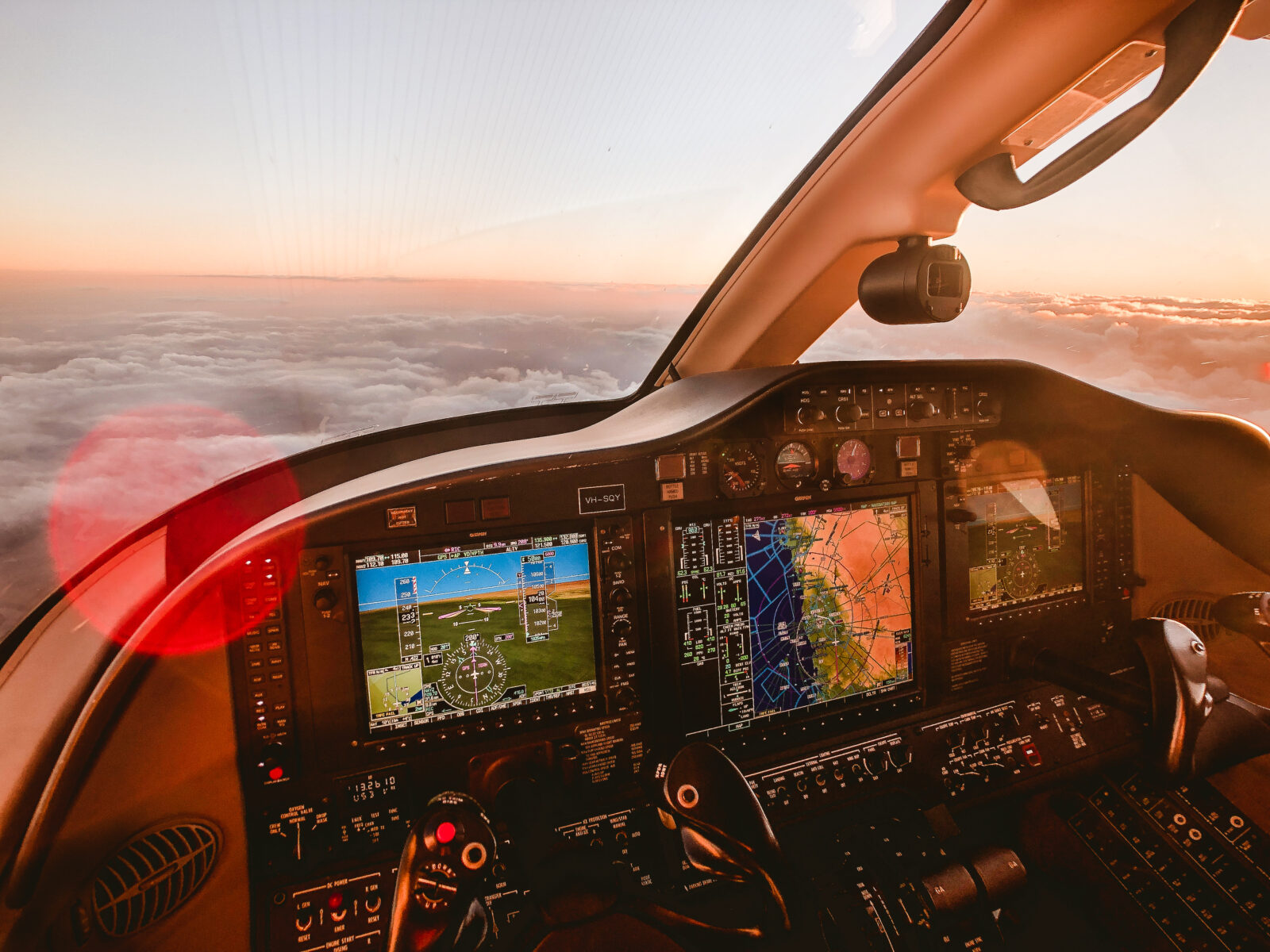
Since the dawn of the Australian aviation industry, Bankstown Airport has played an essential role in supporting the lives of Australians, and the livelihoods of the aviation community. From our early years as a military base during World War II, we have evolved into a thriving hub for general aviation, and a strategic centre for aviation training and emergency services in NSW.
1970
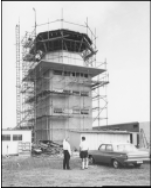
1970
Construction of current control tower
1972
Bankstown was the largest general aviation airport in the southern hemisphere with over 250,000 aircraft movements per year.
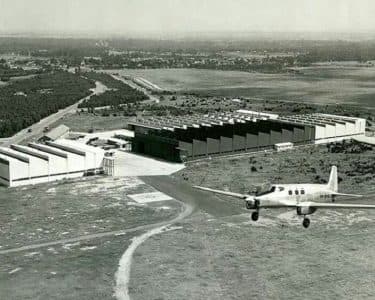
1980
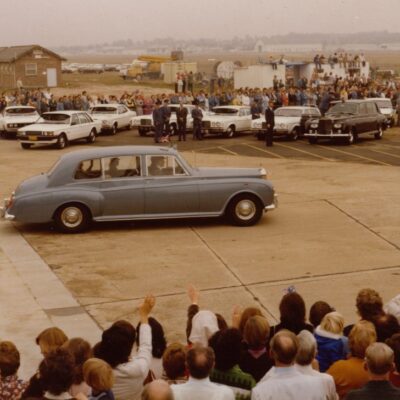
1980
Queen Elizabeth II and Prince Philip visited Bankstown Airport 27 May 1980
1987
First Blackhawk assembled in April and first flight of the PC9 RAAF trainer was in November.
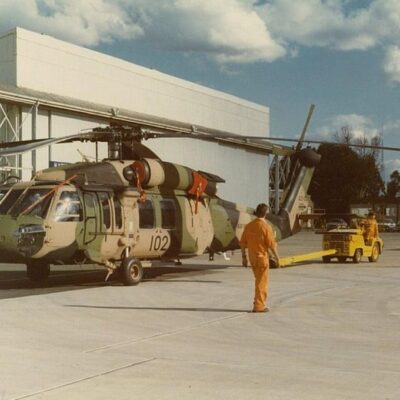
1990
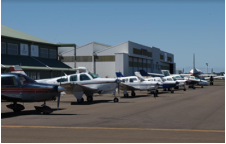
1990
A steady programme of infrastructure development leads to an increase in flying schools, providing pilots for the future of Australian aviation
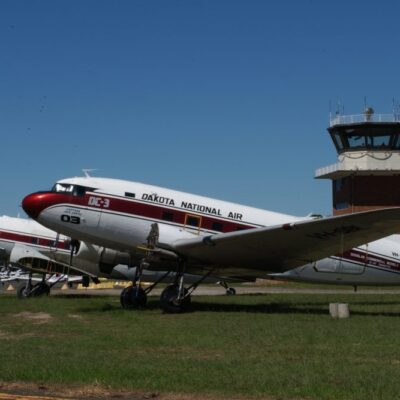
1992
Dakota National Air was formed in 1992 but ceased operations in 2003 after going bankrupt
2000
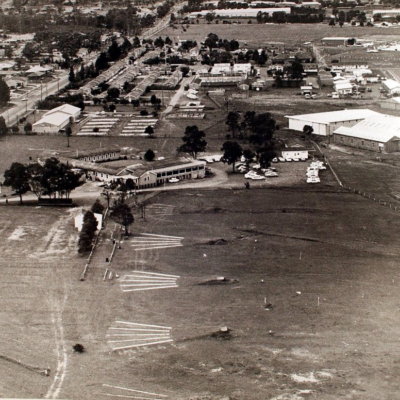
2000
• The Sydney Olympic Torch visited Bankstown Airport.
• Widening of the northern taxiway (now known as TWY A)
2001
Bankstown Airport Limited (BAL) and Camden Airport Limited (CAL) separated from Sydney Airport Corporation Limited (SACL)
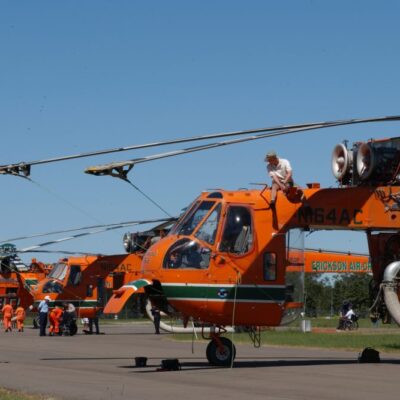

2004
Bunnings was developed on Milperra Rd.
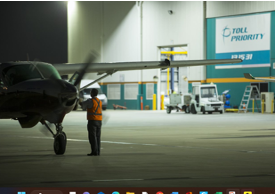
2006
• Closure of RWY 18/36
• Construction of Nancy Ellis Leebold Dr and TOLL Priority building
2010
2010
Runway Centre was re-sheeted
2013
Taxiways renamed and MAGS installed
2015
TOLL Ambulance building developed
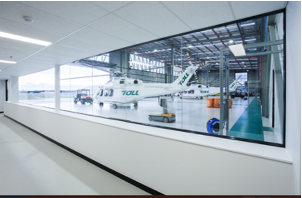
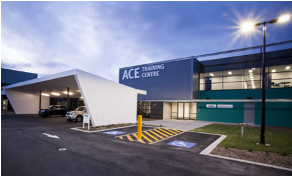
2017
Complete Aircrew Training System (CATS) as well as Helicopter Underwater Escape Training (HUET) facility with land and water winch training capabilities in the purpose-built training pool and water winching.
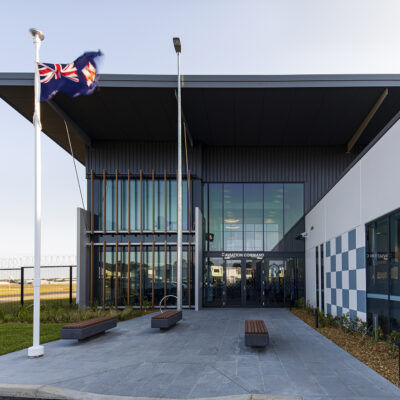
2019
New POLAIR Facility development began
2020
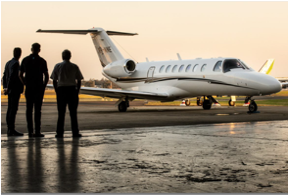
2020
The airports are responsible for more than 6,000 full time local jobs, it will continue to be a major economic contributor for the Canterbury-Bankstown region for decades to come, and a vital link in the provision of aviation services for New South Wales.
Future
Future
A new horizon …
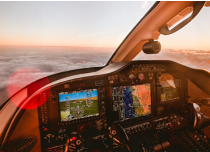
1940

1940
• Bankstown acquired as airfield site for Defence
• Site preparations begin
• Formal establishment of Bankstown Royal Australian Air Force station
• Bankstown was one of 125 airfields in NSW, and 1 of 23 in the NSW region
1941
• First aircraft arrived for assembly (Avro Ansons)
• First aircraft assembled and first two hangars completed
• First Women’s Auxiliary Australian Air Force (WAAAF) trained at Bankstown
• Two more hangars and other facilities erected

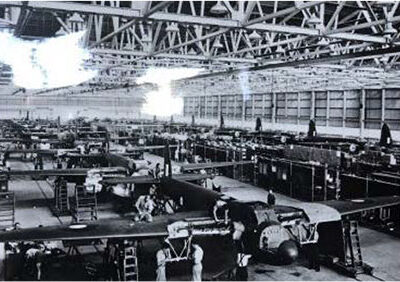
1942
• United States Army Air Forces (USAAF) Headquarters Squadron and 7 th Fighter Squadron
49 th Pursuit Group arrive with their P-40 Kittyhawk Fighter aircraft. Bankstown quickly became known as “Yankstown”.
• Establishment of Fighter Control Unit 1010 to co-ordinate fighter defence of Sydney.
• Completion of the American Hangar (building 114)
1943
• Construction of the de Havilland factory on the southern side of the airfield. The de Havilland plant created valuable jobs for the post-war economy
• Construction of the hospital

1945
• The Bankstown Bunker is commissioned as headquarters for the Air Defence of Sydney
• RAAF Bankstown is handed over to the British Royal Navy as HMS Nabberley
• Victor in the Pacific (VP day) and HMS Nabberley was involved in the return of Prisoners of War from Japanese camps and the disposal of aircraft

1948
• The de Havilland Drover flew for the first time at Bankstown
• Bankstown Airport came under the control of the Department of Civil Aviation (DCA)
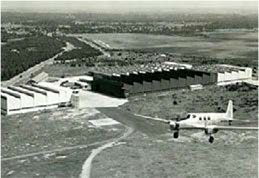
1944
• The first British Royal Navy contingent reached Bankstown to establish Her Majesty’s
Ship (HMS) Nabberley.
1946
• HMS Nabberley was closed and Bankstown was handed back to the RAAF
• The Royal Aero Club arrived at Bankstown from Mascot
1949
• The Bankstown Bunker ceased operations
• The first flight of the de Havilland Vampire
1950

1950
• Floodlighting for the Air Traffic Control Tower.
1952
Floodlighting for the Air Traffic Control Tower

1953
Air traffic control Tower

1955
Bristol freighter was the first purpose-built civilian heavy freight aircraft

1956
Closure of migrant camps
1960
1961
• First Victa Airtourer flew. Aircraft was designed and built at Bankstown.
• Bankstown tower
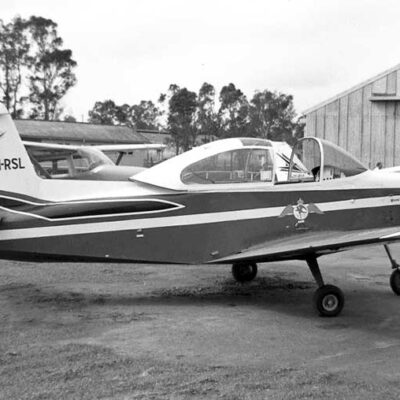
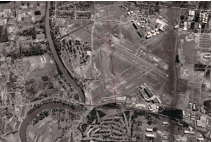
1962
• 3 runway directions (11/29 & 18/36 & 05/23)
• Second parallel runway in the 11/29 directions.
• Main runway upgraded to allow for Sea Venom jets to operate.
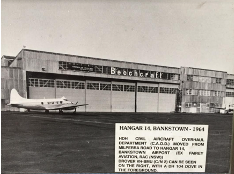
1964
Civil aircraft overhaul department moved from Milperra road to Hangar 14 Bankstown Airport
1965
Runway lights installed
1968
Maintenance Wessex and Neptune aircrafts
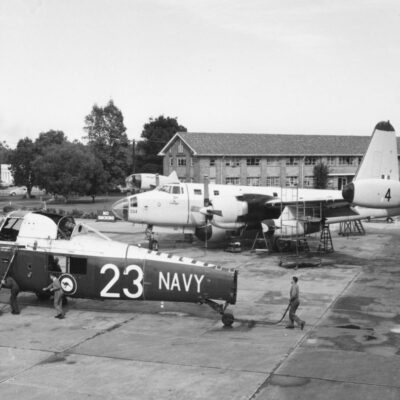
Aeria Management Group is committed to making the Aeria precinct, Bankstown Airport and Camden Airport part of a sustainable future for our employees, stakeholders, the surrounding community and the environment.
A range of environmental programs and initiatives are implemented to manage our environment, including conservation, regeneration and clean technologies to improve and protect the environment.
We are committed to developing and enhancing these systems and work programs for improved environmental outcomes at Aeria, our airports and the surrounding community.

Aeria connects a diverse community of business and people across both Aviation and non Aviation tenants, as well as the local, industry and special interest groups we are proud to support including:
